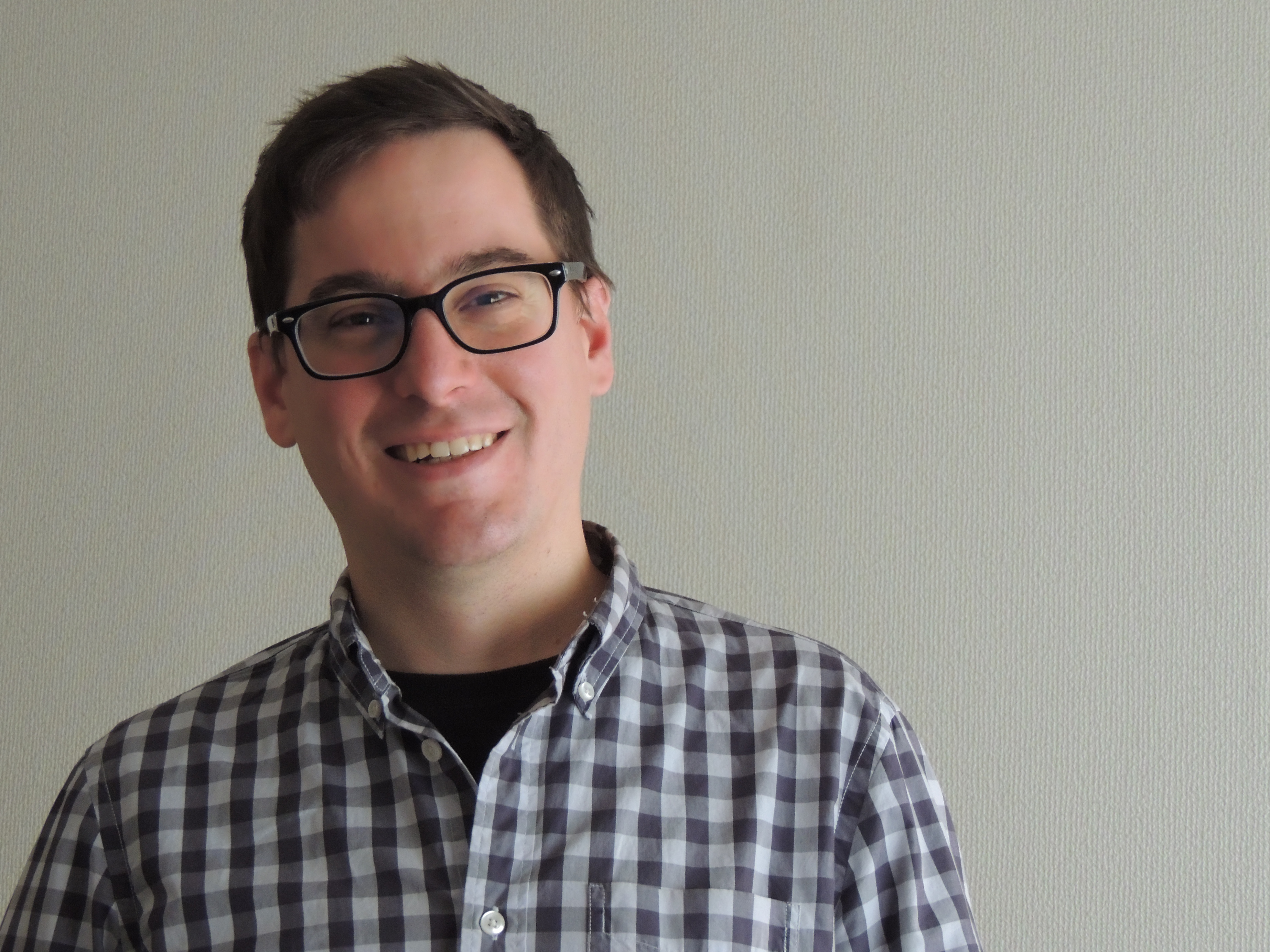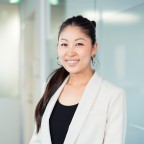Davey Young (デイヴィッド ヨアング) 講師
学歴 Academic background |
||
|---|---|---|
|
BA, University of Puget Sound (English Literature) MA, Seattle Pacific University (TESOL) |
 |
|
専門分野 Academic interests
- In the past, my research as a language educator focused largely on interactional competence (specifically how Japanese learners of English take turns speaking) and materials development. More recently, I have become interested in quality assurance in curriculum development and teacher training. However, all of these research interests are overshadowed by my current concern for how special educational needs intersect with language learning.
My research into this intersection has been driven by one primary question: how can we as language educators best teach all students, including those with both visible and invisible disabilities or learner differences? This question has caused me to think about not only how students with disabilities or differences learn a language, but how curricula and language teaching programs can be created with these disabilities and differences in mind. My foremost goal as an educator is to reshape the landscape of English language education so that all teachers at the postsecondary level in Japan are prepared to teach students with disabilities.
担当科目 Courses provided at Department of English Studies
-
English Skills B
IIn this course, we will examine the debate around human driven climate change, as well as some of the science behind climate change, and use this broader topic as a vehicle to improve our critical reasoning skills through the method of argumentative reconstruction. Most of the work in this class will be collaborative and conducted in the intellectual spirit of truth-seeking for the betterment of ourselves and society at large. Students in this class will also be responsible for researching this topic on their own and exploring ways in which climate change and/or the debate surrounding it have impacted, or could further impact, the communities around them. The content we study will also be used to create work ranging from traditional academic essays and presentations to solutions-focused projects with the potential for real-world use. Both the instructor and students alike should come to class each lesson with a positive and constructive mindset, as well as degree of intellectual modesty appropriate for our shared endeavor.
English Composition A
My approach to teaching writing in this course is to use Question Based Instruction, which means that students generate their own questions to answer and explore through in-class discussion and out-of-class writing. In this way, everyone will have a great deal of independence, but with space for collaborative support and instructional guidance. Students will learn how to write a traditional five-paragraph essay, the basis of academic writing in English, by selecting their own topic to research in greater detail. The focus in the spring semester will be on organizing ideas, writing a clear thesis, supporting ideas with attention to proper structure (sentence, paragraph, and essay), and revision. In the fall, the focus will be on fine-tuning skills from the spring while conducting research to vet and use sources in the proper academic context.
Business Communication 1
In this class, students will discuss a number of core concepts in business today and practice basic communication skills necessary in professional environments. These include simple skills like introducing yourself and communicating with customers, as well as more complex skills like problem solving as a group and giving presentations. We will also explore contemporary trends in business such as the gig economy and crowdfunding. Students will practice creative thinking and interact a lot with peers to discuss and solve problems related to business in English. My method for teaching this class will be a blend of communicative and task-based instruction, so students will do a lot of speaking with each other to solve problems in small groups.Discussion & Debate 2
My aim with this course aims is to develop students' academic discussion and communication skills and overall speaking fluency. Therefore, I will take a principled communicative approach to teaching as students will discuss a wide variety of topics and learn several formal discussion and debate skills to organize and advance their ideas. This class will include a lot of student-to-student interaction and very few lectures. Regular attendance and participation in class will be critical to improving students’ discussion and debate skills.
Diversity & Inclusion in Education
Education is broadly recognized as a human right. Legislation in many countries is designed to safeguard equal access to, and treatment in, education for all people. In actual practice, however, many different groups of people are denied such access and treatment, and the reasons for such denial are rarely straightforward. The first semester of this course will focus on a theoretical understanding of diversity and inclusion in education. We will spend ample time defining and discussing key concepts in the social justice approach to education, universal design for learning, and inclusive practice. Students will also keep a learning journal in this semester to reflect on their learning with respect to their own social position, to practice pattern recognition, and to pose questions to positions of authority. The fall semester will focus more on putting principles into practice. We will begin by reviewing key concepts from the spring semester and then examining cases of diversity and inclusion (or a lack of it) from educational contexts around the world. We will also learn about how policy shapes practice. Finally, we will shift focus to designing inclusive language learning lessons for students with disabilities.
This course will be especially helpful for future language teachers, though it will also have something to offer students interested in education and social justice more generally. Anyone who enrolls in this class should attend with an open and accepting attitude to help create a welcoming and comfortable environment for all.
主な著書、その他 Publications, Others
主な著書 Publications
Selected Papers
Young, D. (2020). Quality assurance, program evaluation, and curriculum revision: A
case study from Rikkyo University. New Directions in Teaching and Learning
English Discussion, 8, 317-337.
Young, D., Schaefer, M. Y., & Lesley, J. (2019). Accommodating students with disabilities
studying English as a foreign language. Journal of Postsecondary Education
and Disability, 32(3), 311-319.
Young, D. (2019). Providing reasonable accommodations for EFL students with
disabilities in higher education in Japan. The Language Teacher, 43(5), 9-12.
Young, D., & Schaefer, M. Y. (2019). Collaborative support for students with disabilities.
In P. Clements, A. Krause, & P. Bennett (Eds.), Diversity and inclusion (pp. 136-
142). Tokyo: JALT. [PCP Selected Paper. Reprinted in The Language Teacher,
44(2), 13-19.]
Young, D. (2018). Contrastive models for turn-taking in English and Japanese. The
Language Teacher, 42(3), 9-12.
Young, D. (2017). Textbook revision in the EDC context: Lesson activities. New
Directions in Teaching and Learning English Discussion, 5, 313-319.
Young, D. (2015). A conversation analysis of the acquisition and use of turn-taking
practices in an English discussion class. New Directions in Teaching and
Learning English Discussion, 3, 320-330.
Young, D. (2014). Using manipulatives to promote proper floor management in English
discussion. New Directions in Teaching and Learning English Discussion, 2,
265-273.
Recent Presentations
Young, D. (2020, March). Standardizing support systems for EFL students with
disabilities in higher education. Paper accepted at 55th RELC International
Conference, Singapore. [Cancelled due to COVID-19.]
Schaefer, M. Y., & Young, D. (2019, December). Revising assessment tools for a large-
scale and strongly unified speaking course syllabus. Paper presented at New
Directions 2019, Yokohama, Japan.
Young, D. (2019, December). Video observations for principled teacher development and
quality assurance in a unified syllabus. Paper presented at Using Video in
Language Teacher Education: A JALT Teacher Development SIG Forum, Tokyo,
Japan. [Invited speaker.]
Young, D. & Schaefer, M. Y. (2018, November). Collaborative support for special-needs
students. Paper presented at JALT2018 Annual Conference, Shizuoka, Japan.
Young, D. (2018, September). Student attitudes towards discussing textbook topics.
Paper presented at CUE SIG 2018, Tokyo, Japan. Brereton, P. & Young, D. (2018,
May). Towards autonomy in reflective professional development. Paper
presented at PanSIG 2018, Tokyo, Japan.
Hata, M., Young, D., & Nazemi, N. (2018, March). Systematizing support for language
learners with disabilities in higher education. Paper presented at the TESOL
2018 International Convention, Chicago, IL, U.S.A.
Young, D. & Schaefer, M. Y. (2018, March). Evaluating large-scale speaking assessment
in a unified curriculum. Paper presented at the 53rd RELC International
Conference, Singapore.
Young, D., Schaefer, M. Y., and Lesley, J. (2017, March). Integrating students with special
needs into an EFL curriculum. Paper presented at the TESOL 2017
International Convention, Seattle, WA, U.S.A.
Livingston, M., Schaefer, M. Y., Lesley, J., & Young, D. (2016, November). Ongoing
program evaluation in a unified curriculum. Paper presented at the JALT2016
Annual Conference, Nagoya, Japan.
Young, D. (2016, November). Turn-taking techniques for the communicative class. Paper
presented at the JALT2016 Annual Conference, Nagoya, Japan.
Young, D. (2016, March). Applying CLT from classroom to curriculum. Paper presented
at the 21st International Conference of NELTA, Lalitpur, Nepal.
Textbooks
Co-author, What’s your opinion? Interactive skills for effective discussion, 1st ed. (2020)
Co-author, What do you think? Interactive skills for effective discussion 2, 6th-10th eds.
(2015-2019).
Co-author, What do you think? Interactive skills for effective discussion 1, 7th-10th eds.
(2015-2019).
- その他/Others
Current Chair, Supporting Students with Disabilities Interest Section, TESOL
International
Proposal Reviewer, Program Administration & Evaluation Strand, TESOL 2020
International Convention
Judge, TESOL Professional Development Scholarships, TESOL 2020 International
Convention


















